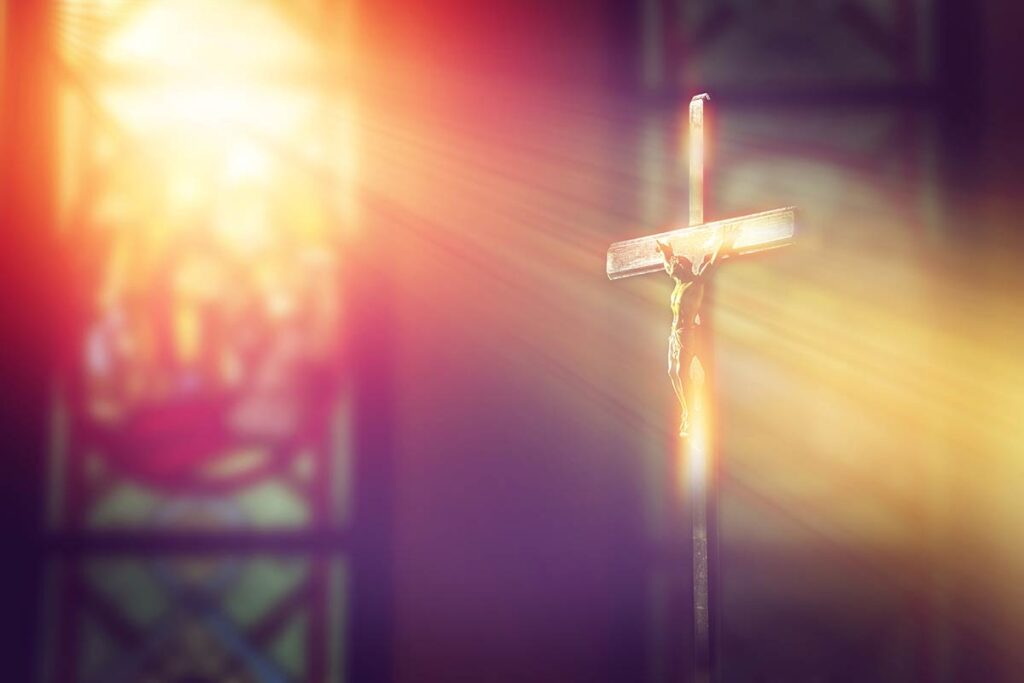Pondering a Pope’s Passing
April 28, 2025
By Michael Cooper-White

Last week’s funeral for Pope Francis was one of those rare events that grabbed the whole world’s attention. St. Peter’s Square in Rome was packed with more than 200,000 people from all around the globe. Millions gathered Saturday and Sunday in their own parishes for memorial masses. Tens of millions watched the weeklong wake and funeral service on television or their computers. Francis’ transition into the larger life of God was marked and mourned on every continent in thousands of homes and hundreds of languages.
A flood of memories and musings flashed through my mind as I observed this papal passing. Growing up “protestant” in the 1950’s, we paid little attention to the bishop of Rome or bishops, period. As a midwestern Lutheran lad, I could not have named the present or any other Pope. To the extent the protestant parents in our town thought at all about Roman Catholics, it was mostly to worry that a son or daughter might marry one. Two of my uncles had done just that and their Catholic wives and kids seemed like everyone else, so I was puzzled why wedding someone of another “religion” was such a big deal.
Then came the marvelous movement known as “ecumenical,” which launched waves of renewal and rethinking all over the world. Of all the past century’s popes, John the 23rd was probably most like the just-departed Francis. Convening the Second Vatican Council in 1962, he blew the minds of millions by initiating far-reaching reforms like abandoning Latin, expanding roles for the laity, and opening dialogues with a wide spectrum of denominations.
For my peers and me, seminary education in the 1970’s was a far cry from that experienced by previous generations. Within a few years, protestant seminaries entered partnerships with Roman Catholic schools. I took classes at the Catholic University of America and other Roman schools of the Washington Theological Consortium. Some of my single classmates lived at a Catholic seminary where others of us joined the resident community for weekly conversations. Lubricating our frequent ecumenical dialogues was a well-stocked adult beverage bar, still frowned upon in more pious religious institutions.
Amidst all the bonhomie of growing ecumenical relations, of course, there was and is honest acknowledgement of the continuing differences among denominations. Over the years there have been awkward moments when protestant women clergy have felt unwelcome at the Vatican and elsewhere. A procession of bishops in my denomination looks very different from that we beheld in Rome last week, since more than half of ours are now female. While Christians of many communions frequently join in prayer services, the tables of Holy Communion are not open to all everywhere. The fact that the number of denominations keeps growing (estimates range between 20,000 and 45,000 worldwide) is evidence dreams of one unified “catholic” or universal church elude us more than ever.
But even as ecumenical fervor waned a bit in recent decades, Pope Francis infused new momentum and imposed an unprecedented gravitas. In 2016 he journeyed to Sweden and helped us Lutherans launch commemorations of the 500th anniversary of the Reformation, an act that would have been deemed scandalous in pre-Vatican II times.
Six months after his coronation in 2013, Francis said in an interview, “Today we have the ecumenism of blood. In some countries they kill Christians because they wear a cross or have a Bible, and before killing them they don’t ask if they’re Anglicans, Lutherans, Catholics or Orthodox. The blood is mixed.” That we humans are all of one blood, the Pope said on another occasion, “must encourage us to do what we are doing today: to pray, to dialogue together, to shorten the distance between us, to strengthen our bonds of brotherhood.”
Continuing, and often expanding, gulfs between peoples, nations, and even churches never drove Pope Francis to despair. Rather, he rose to every occasion with an undaunted spirit of hope and healing, prayer and peacemaking. Coming of age in war-torn Argentina, he knew in his bones the perils of division and violence. Pastoring among the poor made him a champion for those on the margins of society. Lining the steps of the basilica where he was buried were migrants, transgender people, and some of Rome’s impoverished.
“Build bridges, not walls,” repeated the funeral preacher, echoing words spoken so often by Jorge Mario Bergoglio, aka Pope Francis. Among those who heard that exhortation were many of the world’s political leaders, including the current U.S. president. We can all hope they heed that papal proclamation.
Rest in peace, Hermano Jorge. Thank you for your faithful service.